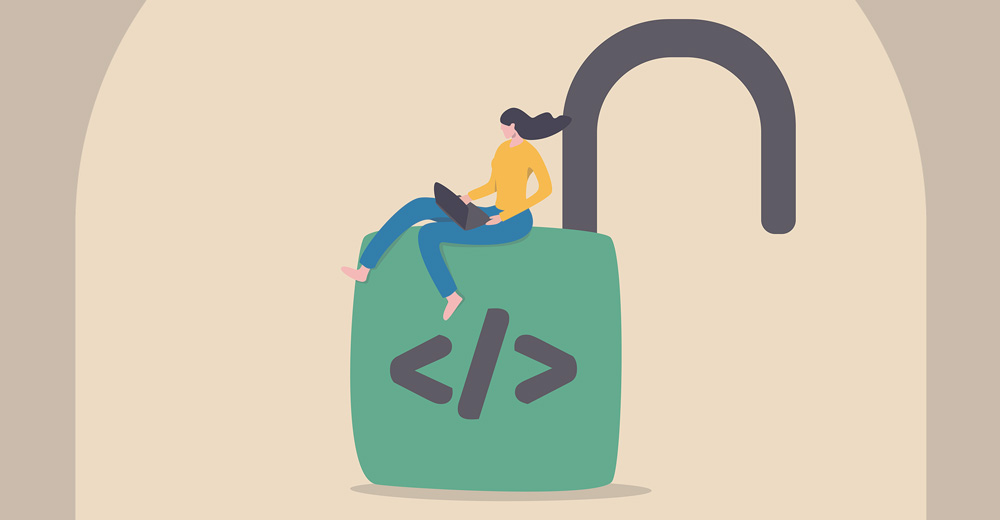Cloud-native microservices platform Lightbend wants open-source licensing to better meet developers’ needs and is doing something to make that happen. However, the replacement fix is not a traditional open-source license. Rather, it transitions there in time.
The company, whose user base includes some of the world’s largest brands, on Wednesday announced significant changes to the licensing model for its Akka technology. The platform is used extensively by industry leaders in financial services, e-commerce, automotive, web services, cloud infrastructure, and gaming.
Akka offers devs the ability to deliver concurrent, distributed, and resilient event-driven applications for Java and Scala. Lightbend is changing the license on all Akka modules from Apache 2.0 to Business Source License (BSL) v1.1, starting with Akka v2.7 which will be delivered in October.
That change will bring hefty licensing costs to high-end users. But Lightbend expects it to bring no major problems on open-source projects.
“The goal is to have as little impact on the open-source community and projects as possible. Open-source projects using Akka can contact Lightbend and apply for a license to use Akka within the realms of the open-source project. We have already called about the Play Framework in the Additional Usage Grant in the license itself,” Jonas Bonér, Lightbend’s founder and CEO and the creator of Akka, told LinuxInsider.
The new license will ensure a healthy balance between all parties, shared responsibility, and by extension, contribute to Akka’s future development, he explained.
Addresses Broken Business Model
The “open core” business model on which Akka is based has shown its limitations for Lightbend and many other organizations in similar circumstances, he offered. The toolkit’s licensing changes will ensure its future development.
Once an OSS project becomes so critical to an organization’s daily operation, many larger enterprises turn to self-supporting this software, without contributing anything more to its development or the community at large, Bonér observed. In many instances, these organizations are generating significant profits leveraging this “free” technology.
Under Akka’s new licensing model, any organization with less than $25 million in annual revenue will not require license fees for production usage of the software. However, Lightbend must still grant those users a $0 commercial license.
Larger businesses with more than $25 million annual revenue must now acquire a paid license plus a subscription for production usage. The BSL is available with several options. The new license does not permit back-porting of any software released.
“I think it is a viable path toward sustainable open source. I expect more companies that are building a business around open source to go down this path,” Bonér noted about the impact the BSL license switch will have on open-source projects.
How It Works
MariaDB Corporation crafted the BSL v1.1 now used by Cockroach Labs and other organizations. The BSL is not an open-source license.
In short, the difference is slight between the BSL 1.0 and BSL 1.1, explained Bonér. Version 1.1 fixed the loophole where a company could opt to never convert to a “change license” by now making it explicit that it could not be more than four years. A full discussion of the version change is available at MariaDB.
Akka’s new license works in two stages. First it has commercial overtones. Then it becomes “customizable.”
Under the commercial stage, users can view the source code of the software they obtain for the $0 license. They can download and use it in non-production environments. However, production usage requires users to obtain an upgraded software license from Lightbend.
The second stage kicks in under an open-source license after three years. That version then is released under the current Apache 2.0 license. It offers a customizable “Additional Use Grant” that will be used to grant usage for other OSS projects such as the Play Framework.
Pricing and Versioning Matters
Each new minor version of the software will have its own change date. A “minor version” is defined as a release that changes the second digit of the version number.
For example, a change from Akka 2.7.19 to 2.8.0 would reset the change date. A patch build change from 2.7.19 to 2.7.20 would not, according to Bonér.
Based on this license revision, here is Lightbend’s revised pricing and packaging for the Akka software:

Organizations seeking more information about the implementation of BSL licensing can explore Bonér’s blog.























































